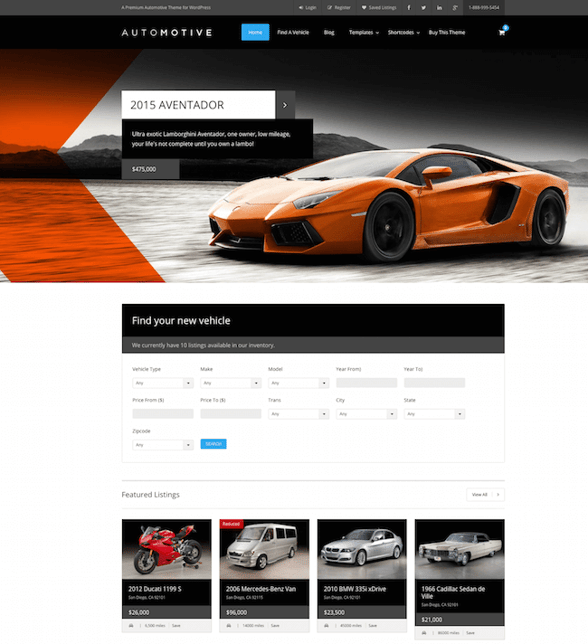Drive Sales With an Automotive CRM
Learn what an automotive CRM is, its benefits, and how you can use it for your auto dealership.


An automotive CRM (customer relationship management) is a software solution that helps car companies with customer service, sales, and marketing. It enables dealerships to collect leads, coordinate a multi-channel sales operation, and foster deeper customer relationships.
Companies are increasingly relying on CRMs for nurturing customer relationships and improving the customer journey. A 2022 report by Fortune Business Insights shares that the CRM market grew by 10% even during the pandemic. This shows the value companies get from CRMs.
Companies that use CRMs observe:
An automotive CRM helps you get all those benefits and more.
The car buying and selling process is anything but simple. From collecting leads and facilitating financing schemes to inventory management and after-sales service, car salespeople juggle multiple customers at varying customer journey stages.
See how an automotive CRM tool can help you manage those stages effectively:
You interact with clients throughout the sales process, from the content that speaks to their needs to quick customer support that helps you turn them into repeat buyers.
This means your connection with the customers shouldn’t stop once they’re inside your sales pipeline.
An automotive CRM tool helps you ensure this by connecting you to your customers through multiple channels, such as a website, blog, email, and social media. To top it off, you can rely on marketing automation to tailor your messaging and offer a personalized experience.
Besides that, you receive questions from your clients on all these channels — and customers expect you to respond to queries in 10 minutes or less.
An automotive CRM with a universal inbox function can help you ensure this as it collates queries from different customer service channels so you don't miss anything.
While communication with clients turns leads into sales, messaging alone is not enough. You need to track when your prospects interact with your touchpoints and schedule meetings at the right time to convert them. In other words, you need to automate your sales process.
Besides that, a few sales prospects may fall through the cracks with so many communication channels. With its lead generation and pipeline management tools, your automotive CRM can prevent these leaks and help you move prospects down the sales pipeline.
Also, sales analytics and reporting can help you identify what’s working and what isn’t to optimize your sales process.
The secret to closing more deals is creating a seamless sales process.
And a sales CRM that focuses on automotive can help you offer that experience. You can benefit from task management capabilities to ensure your team is on the same page and workflow automation to take low-value tasks off your plate, enabling you to meet customers and close more deals.
Besides that, you wouldn’t want to lose a client over lack of payment processing features in your sales process. That’s why you should choose a CRM with native payment processing that streamlines the customers’ buying experience by combining customer and commerce data under one roof.
Think CRM Software is just about contact management? Think again. HubSpot CRM has free tools for everyone on your team and it's 100% free.
While choosing an automotive CRM software depends on your organization’s size and needs, the following features can help you manage your dealership:
Ideally, an automotive CRM lets you create and manage contact records that include client information, such as budget, car model preference, and channel where they found you, to build a comprehensive customer profile.
Besides that, an automotive CRM should let you automate the menial tasks and manage your contacts without bothering with excessive data entry.
As the traditional automotive retail model gets digitized across multiple channels and systems, you can get leads from anywhere:
Lead tracking and management can be challenging when dealing with multiple clients.
With features such as lead generation, lead nurturing, and lead management, auto dealership CRMs collate these leads into one platform to ensure equal nurturing.
Besides that, an automotive CRM should help you move your clients through the car buying journey by letting you provide your client with the right information at the right time.
You can optimize and personalize your marketing messages using CRM data.
The best automotive CRMs follow a CRM-driven approach to let you create personalized experiences across multiple channels — from a single platform.
You should be able to:
Automotive CRMs improve collaboration between team members.
Besides communication features, task management capabilities ensure team members know what’s on their workflow for the day. And they can access the client data another team member gathered on the go with mobile CRM capabilities.
Knowledge base functionality lets employees access tutorials, guides, and other resources they need from a single place.
What gets measured gets managed.
An automotive CRM should show you what’s working and what isn't by tracking performance metrics. You can create forecasts and identify opportunities with visual reporting dashboards.
An automotive CRM helps car dealerships and salespeople improve productivity and save time, resulting in increased car sales.
Specifically, an automotive CRM helps you:
Technological advancements and the pandemic have changed both how automobiles are built and how they are sold.
The pandemic force closed many automotive dealerships, and the automotive industry shifted the customer buying journey online to stay in business. Original equipment manufacturers (OEMs), which previously shared information via webpages and articles, started offering virtual tours and test drives.
According to a 2020 study conducted by Google and Kantar, one in 10 car buyers in the US purchased their car online. Considering we make most of our purchases online now, that may not seem much — until you consider that only 1% of car purchases were made online in 2018.
An automotive CRM helps you enable these digital-centric experiences and benefit from them. You can get customers to meet your sales teams virtually and decide on their purchases.
The customer journey doesn’t stop after a customer purchases a car.
According to a 2018 research by Facebook, 86% of customers said they'd like to engage with their auto dealer after purchasing a car. They want to receive maintenance reminders, follow-up promotional offers such as extended warranties or gap insurance products, and vehicle usage tips.
For example, HubSpot’s Sales Hub lets you interact with your customers post-purchase and upsell car parts and accessories, which is becoming a trend in today’s market.
Yesterday’s car-buying journey was simple, with clients walking into dealerships and choosing a car model. Today’s car-buying journey involves multiple touchpoints and iterations; losing these leads is much easier.
An automotive CRM tracks these customer interactions at various touchpoints and ensures a seamless omnichannel experience, so customers can pick up where they left off.
According to a Google study, 90% of car buyers rely on online research before buying a car, and 68% of them only visit one showroom during their journey. This means you need to ensure your prospects pick your showroom first.
You can do so by providing a good customer experience. If you answer your client’s queries and resolve their issues, they might not even need to step foot in your showroom until it’s time to pick up the car.
HubSpot’s customer service tools have everything you’ll need to offer efficient and helpful customer service. A universal inbox lets you answer queries sent over various channels such as live chat or email, and automated ticketing route requests to the relevant team member.
An automotive CRM lets you do more with your time by automating repetitive tasks, such as:
Sales agents are always on the go.
Most automotive CRMs have desktop and mobile options, so your employees can access data anywhere. This comes with security challenges.
However, if you choose a secure CRM software solution that offers features like web application firewall (WAF), regular vulnerability scanning, and encrypted data transfers, you can rest assured that your data is safe.

Thanks to inbound and the HubSpot software, we’ve been able to bridge the gap between marketing and closed sales.
Charl Grobler
National Marketing and Product Planning Manager
Suzuki South Africa
Like finding the right car for your personal use, you need to understand your business’ needs before choosing the best automotive CRM.
Besides the features specific to the automotive industry, here are additional criteria to help you choose an automotive CRM.
Time is money in sales.
You should look for a CRM that’s easy to use — one that does not have a steep learning curve. And if you require guidance, you should have access to tutorials, community forums, and 24/7 customer support.
For example, HubSpot CRM lets you get started in three minutes or less. Not just that, you can access helpful tutorials at its knowledge base and valuable courses through HubSpot Academy.
Sales teams are always on the go.
Choose a CRM that lets you access data anywhere and has security features to ensure your data is safe.
For instance, HubSpot’s cloud CRM has desktop and mobile options that let your teams access data in real-time. Plus, it protects your data data via security features like WAF, data encryption, and DDoS protection.
When looking for an automotive CRM, choose a solution that grows with your business so you won't have to change tools or migrate your data every year.
For example, HubSpot CRM offers tiered plans to accommodate both small businesses to larger enterprises.
As today’s car-buying journey begins online, having an automotive CRM will help your car dealership benefit from the additional lead generation channels.
Besides that, an automotive CRM helps you automate low-value processes, letting you spend your time on priority tasks. You can connect with customers and provide excellent service through multiple touchpoints and channels — converting more leads and closing more sales.
When looking for an automotive CRM, don't limit your choices to the CRM that has the basic features you need. Consider a CRM that’s secure, scalable, and mobile.
Start with HubSpot’s Free CRM today.Scale quick, stay lean. Bring your teams together with HubSpot’s CRM for automotive.

Automotive CRM solutions streamline your sales processes. It helps you improve your car dealership’s productivity, enhance customer relationships, and reduce friction, letting you sell more cars.
Automotive CRM software should have features that support:
Besides that, an automotive CRM must also be secure, easy to use, and scalable — just like HubSpot.
Automotive CRMs record customer interactions that automobile companies can use to distinguish between hot and cold leads and create personalized experiences to move customers down the buyer’s journey.